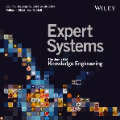The importance of drinking water distribution networks (DWDNs) as critical urban infrastructures has led to the development and utilization of models for the analysis, design, operation, and management of DWDNs, to ensure optimal efficiency and water quality. In order to provide models that accurately represent real-world behavior and characteristics of an actual DWDN, model calibration is an essential and crucial procedure (Alves et al., 2014). However, since DWDNs are generally large, underground networks, data availability for model calibration is often an issue. In this paper, we introduce a novel automatic calibration methodology called Expert Systems and Neuro-Evolution of Augmenting Topologies (ES-NEAT). The proposed methodology leverages the power of Expert Systems (ES) and genetic algorithms for the evolution of neural network topologies to efficiently search for the optimal solution of high dimensional calibration problems while maintaining moderate computational effort. One of the key strengths of ES-NEAT lies in its ability to achieve high accuracy even with limited availability of measurements, addressing the inherent uncertainty in real-world DWDNs. By integrating specific knowledge provided by different stakeholders using the ES methodology, the framework offers a flexible approach that adapts to the unique characteristics of each drinking water distribution network. Moreover, the methodology is designed to store calibration information and transfer it in a structured format for use in subsequent calibration processes, increasing efficiency and ensuring generalizability. The method was successfully applied to a benchmark network model as well as a real-case study of a DWDN in Flanders, Belgium.
翻译:暂无翻译





